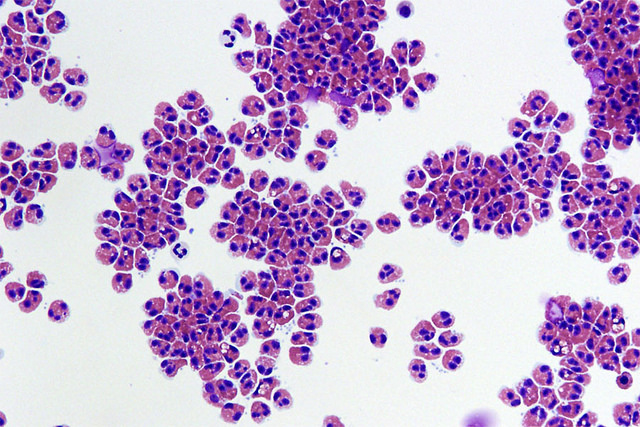Prevention of myocardial damage is the main goal of all reperfusion therapies in patients with acute myocardial infarction. The relative efficacy of various reperfusion strategies is under intensive investigation. We assessed whether coronary stenting combined with the blockade of platelet glycoprotein IIb/IIIa receptors produces a greater degree of myocardial salvage than fibrinolysis with an accelerated infusion of alteplase, a tissue plasminogen activator.
Prevention of myocardial damage is the main goal of all reperfusion therapies in patients with acute myocardial infarction. The relative efficacy of various reperfusion strategies is under intensive investigation. We assessed whether coronary stenting combined with the blockade of platelet glycoprotein IIb/IIIa receptors produces a greater degree of myocardial salvage than fibrinolysis with an accelerated infusion of alteplase, a tissue plasminogen activator.A total of 140 patients were enrolled in the randomized trial; 71 were assigned to receive a stent plus abciximab, and 69 to receive intravenous alteplase. The primary endpoint was the degree of myocardial salvage, determined by means of serial scintigraphic studies with technetium Tc 99m sestamibi. The secondary endpoint was a composite of death, reinfarction, and stroke within six months after randomization.In the group that received a stent plus abciximab, the median size of the final infarct was 14.3 % of the left ventricle (25th and 75th percentiles, 6.8 and 24.5 %), as compared with a median of 19.4 % (25th and 75th percentiles, 7.9 and 34.2 %) in the alteplase group (p = 0.02). This difference was due to the larger salvage index (the percentage of the left ventricle that was salvaged, divided by the percentage that was compromised by the initial perfusion defect) in the stent group: 0.57 (25th and 75th percentiles, 0.35 and 0.69), as compared with 0.26 (25th and 75th percentiles, 0.09 and 0.61; p < 0.001). The cumulative incidence of death, reinfarction, or stroke at six months was lower in the stent group than in the alteplase group (8.5 vs. 23.2 %, p = 0.02; relative risk, 0.34; 95 % CI, 0.13 to 0.88).In patients with acute myocardial infarction, coronary stenting plus abciximab leads to a greater degree of myocardial salvage and a better clinical outcome than does fibrinolysis with a tissue plasminogen activator. (Source: European Society of Cardiology: Acute Coronary Syndromes Trials)
All content and media on the HealthEngine Blog is created and published online for informational purposes only. It is not intended to be a substitute for professional medical advice and should not be relied on as health or personal advice. Always seek the guidance of your doctor or other qualified health professional with any questions you may have regarding your health or a medical condition. Never disregard the advice of a medical professional, or delay in seeking it because of something you have read on this Website. If you think you may have a medical emergency, call your doctor, go to the nearest hospital emergency department, or call the emergency services immediately.







